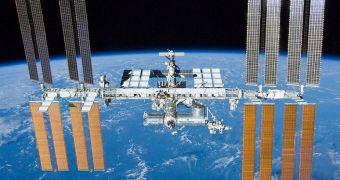Officials at the American space agency announced yesterday that they have signed on an extension of the sustainment contract it has with the Boeing Company, for developing support infrastructure for the International Space Station (ISS).
Boeing is an important actor in the $100 billion international project, and has contributed with hardware and know-how to bringing the orbital facility to its current state.
NASA officials recognized this participation by awarding the company with a 5-year contract extension, which is valued at $ 1.24 billion.
Under the terms of the new agreement, Boeing must continue engineering support for the orbital lab until September 30, 2015. Over the next half a decade, the station needs to remain at peak performance.
NASA specifically requested that the unique zero-gravity research capabilities the station provides be available for as many years as possible, given that it's only know experts are beginning to take full advantage of the work being done in orbit.
The American space agency wants to be able to use these capabilities fully, but also to have them ready for the US government, other agencies, international partners and governments, as well as universities, research institutes and private companies.
The Vehicle Sustaining Engineering Contract (VSEC) NASA signed with Boeing began in January 1995, and was most recently extended in 2008. In March 2010, the Acceptance Review Board took official custody of the ISS for the space agency.
This signified that the ISS had mode from the construction to the utilization stage. The total value of the Boeing contract, from 1995 to 2015, is estimated at $16.2 billion.
“Boeing’s knowledge of the International Space Station allows us to safely fly and operate the station to 2015, set the stage to enable ISS operations until 2020, and potentially extend operations through 2028,” explains Boeing official Joy Bryant.
“We are partnering with NASA to ensure the health of the station’s many subsystems in order to pave the way for ground-breaking science and research aboard the laboratories on station in the years ahead,” adds the expert, who is a vice president at Boeing, and the program manager for the ISS.
“We proved to NASA, through our technical and program management performance, that we are the right long-term partner for ongoing support to the International Space Station Program,” Bryant concludes.

 14 DAY TRIAL //
14 DAY TRIAL //